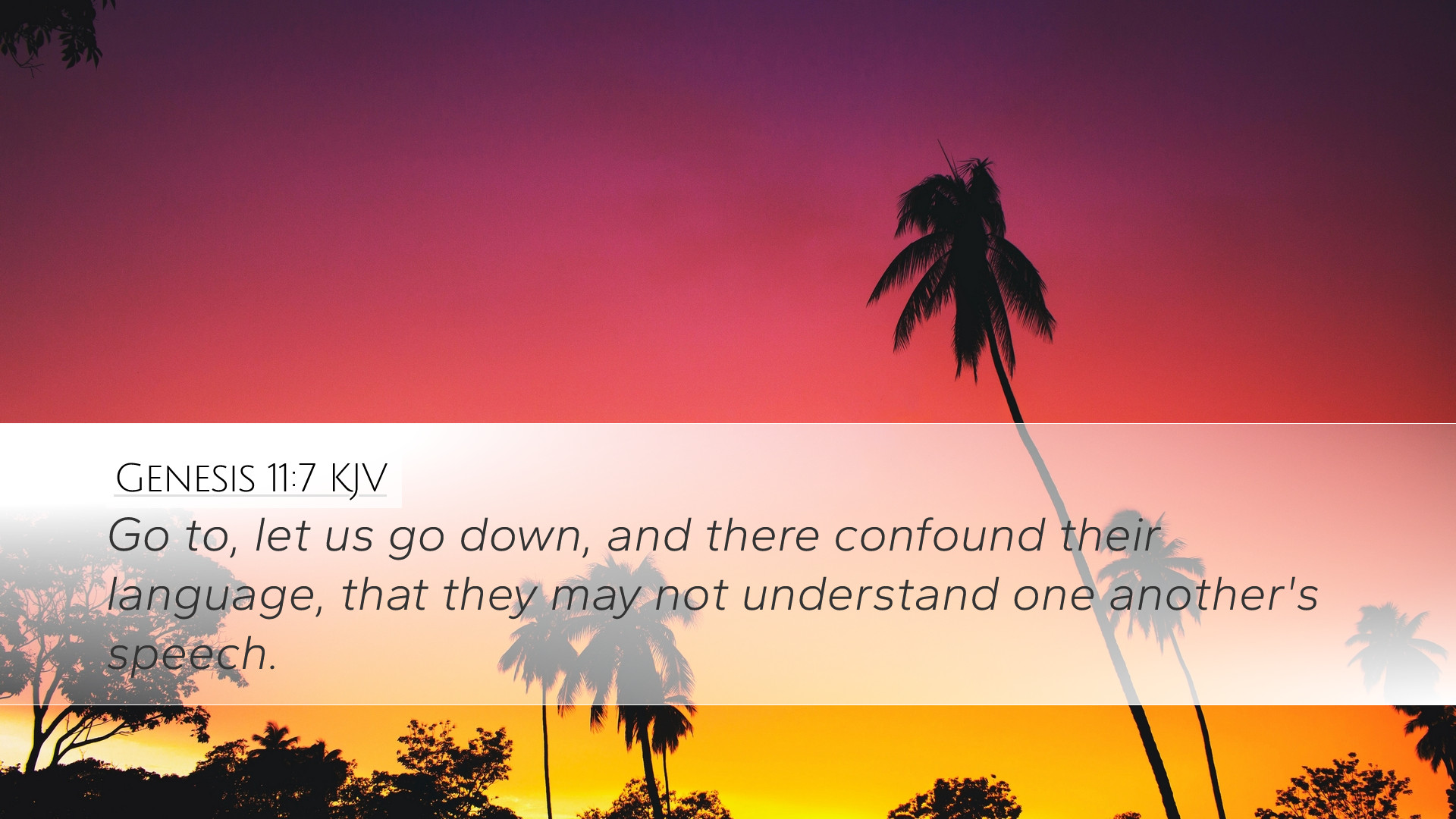Commentary on Genesis 11:7
Verse for Consideration: “Come, let us go down and there confuse their language, so that they may not understand one another's speech.”
Introduction
This verse comes in the context of the Tower of Babel narrative, illustrating a significant moment in biblical history where human ambition meets divine authority. As we analyze Genesis 11:7 through the lens of esteemed public domain commentaries, we strive to extract profound theological insights pertinent to pastors, students, and scholars alike.
The Divine Decision
The phrase “Come, let us go down” signifies a divine resolve to intervene in human affairs. Commentators like Matthew Henry emphasize that God's decision to confuse human language signifies His authority over mankind's activities. The use of “us” hints at the complexity of the Godhead, suggesting a collaborative divine action. It reflects not only God’s sovereignty but also His intimate involvement in creation.
Human Ambition and Divine Intervention
Albert Barnes points out the audacity of humanity in their quest to build a tower that reaches the heavens, a manifestation of pride and self-sufficiency. The desire for a unified language and culture aimed at making a name for themselves directly contradicted God's intention for humanity to spread across the earth (Genesis 1:28). Thus, God intervenes, showcasing His omnipotence in thwarting human plans that defy His will.
The Confusion of Language
The specific act of confusing their language is a pivotal moment. Adam Clarke elaborates on the significance of language as a tool of unity and communication. By introducing confusion, God dismantles the singular human effort to build a societal structure devoid of divine acknowledgment. This act serves to disperse humanity in obedience to God's command while reminding us of the limitations inherent in human endeavors devoid of divine purpose.
Theological Implications
The consequences of divine intervention in Babel carry profound implications for us:
- Human Limitations: The inability to communicate underscores our limitations against the backdrop of God's omniscience and omnipotence.
- Unity in Diversity: The introduction of multiple languages points to the richness of diversity that God intended for humanity, challenging us to embrace cultural differences as part of His creative design.
- Divine Sovereignty: The narrative reveals God's sovereign will over the affairs of men. No human ambition can succeed if it stands opposed to God.
- Call to Obedience: The story serves as a reminder for believers to align their pursuits with divine intentions, promoting unity under God's authority rather than in defiance of it.
Conclusion
Genesis 11:7 encapsulates a critical intersection of human ambition and divine authority. The commentaries of Henry, Barnes, and Clarke offer invaluable insights into this narrative, revealing deep theological themes regarding human nature, divine intervention, and the necessity of recognizing God’s role in our quest for unity and purpose.
As we reflect on the implications of Babel, may we pursue our callings with humility, acknowledging that without divine guidance, our efforts are destined for confusion and falter.


